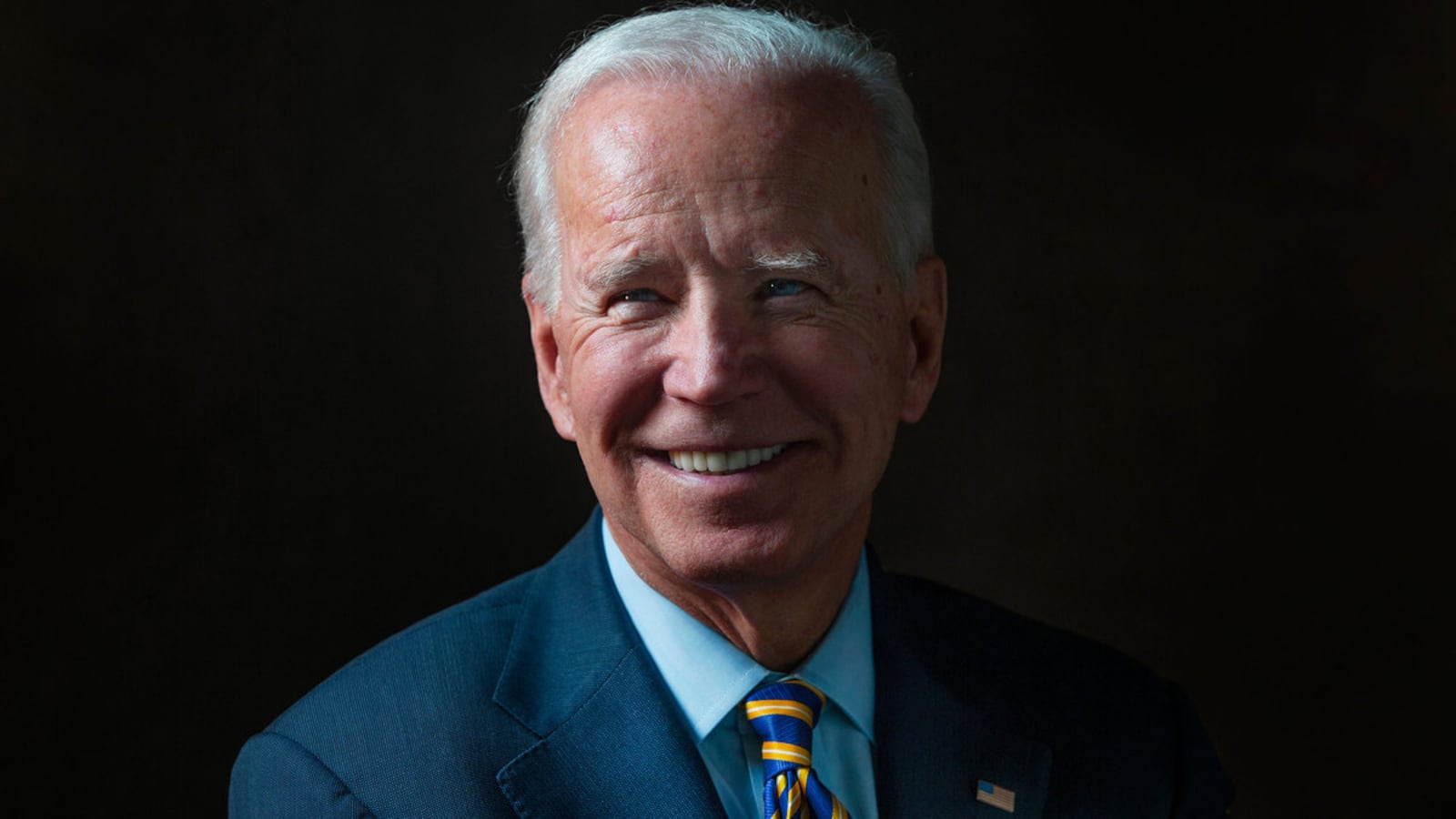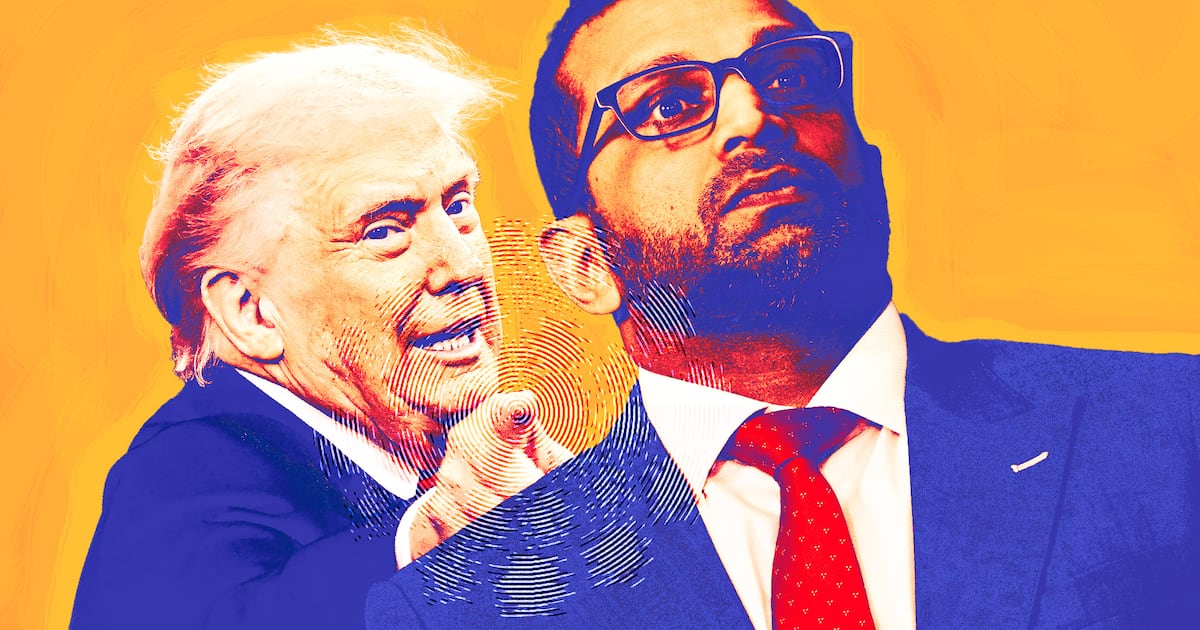Looking forward to the 21st century, then-President Bill Clinton promised an optimistic nation that he would be a bridge to the future, while warning that Republican Bob Dole, his opponent in 1996, would be a bridge to the past.
Nearly a quarter-century of turmoil later, an increasingly pessimistic America—relentlessly immersed in chaos and toxicity—might make a different bet. It might not make as clever a slogan, but a bridge to the recent past doesn’t sound so bad. At least, that’s what Joe Biden is banking on.
To be sure, Biden is not hearkening to a Trumpy “America First” past. He is not some hidebound figure hoping to take us back to the 1940s or ’50s. The nostalgia he’s tapping into is decidedly less ambitious. He doesn’t want a return to Mayberry, just a return to normalcy.
It is not original to suggest that Biden’s folksy, avuncular manner (he’s the kind of guy, as they say, you’d like to have a beer with), coupled with his (comparatively) moderate-to-liberal politics, make him the most electable Democrat.
But what is much less often discussed is how Biden could, potentially, translate this electoral positioning into an effective governing philosophy that would unite the nation and cool the culture war. It’s hard to imagine that anything is more important right now.
Think, for a moment, about the state of America today—and what we really need from a president. On the surface, many of us are already doing well, empirically. What we have is a culture problem. A morale problem. A crisis of confidence. And, without exactly verbalizing it (or becoming too preachy or moralizing about it), Joe Biden seems to grasp this fundamental deficiency.
Let’s take, for example, some of the recent Biden news. The report about him considering serving just one term, the hemming and hawing over whether he would comply with a subpoena to testify in a Senate impeachment trial, and the story about Biden saying he would consider picking a Republican to be his running mate. These controversies have one thing in common: They represent a leader who is wrestling with the tension between demonstrating toughness (which will be needed to take on Donald Trump) and a return to normalcy.
It would, of course, be a mistake to make too much out of this news. Biden’s campaign quickly poo-pooed the one-term pledge. Regarding the hypothetical subpoena, Biden took a few swings before ultimately landing on saying, “Obviously if I were subpoenaed I’d respond. But there is no legitimacy whatsoever to my being subpoenaed to testify." And his comment about being open to a Republican running mate was made in response to a question (and, regarding whom he would pick, Biden hastened to add that he “can’t think of one right now”).
Each of these stories was controversial to some Democrats. Still, taken together, they demonstrate how Biden has prioritized not just his image as a norm-upholding statesman who is a centrist and a healer, but his potential ability to actually govern like one.
As The Washington Post’s Eugene Scott writes, “The fact that Biden would not firmly reject the possibility of sharing a ticket with someone from the right is a reminder of a core piece of the former lawmaker’s political worldview: Biden thinks Republicans are capable of helping him make America great for everyone.”
It’s also worth noting that by merely floating the idea that Biden could tap, say, Mitt Romney, John Kasich, Maryland Governor Larry Hogan, or Condi Rice, might make his selection of a moderate Democrat (say, Amy Klobochar or Pete Buttigieg) a more palatable veep pick to progressives.
It could also make a “team of rivals”-style cabinet more likely, a move that could foreshadow a presidency that is about something bigger than an ambitious progressive policy platform: healing.
America, it seems to me, is long overdue for a leader who actually honors the pledge almost all aspiring presidents make about comity. The “Boring Twenties,” as some have suggested on Twitter, would be a welcome era that is also long overdue.
Following Bill Clinton’s “bridge to the future” presidency (which included an offramp to impeachment), George W. Bush was elected to “restore honor and integrity” to the presidency, and to be “ a uniter, not a divider.”
Bush arguably delivered on the former, but—for various reasons (some out of his control, some his fault)—utterly failed at the latter.
Likewise, Barack Obama burst on the scene with lots of promises about change and transcending politics, but for various reasons (some of them his fault, others the fault of his rivals) his tenure proved divisive.
Even Trump, who has turned out to be so controversial, might have chosen to start with infrastructure rather than a travel ban, hoping to expand his coalition and kill his adversaries with kindness.
Could the New Year bring us a new paradigm?
If Biden wins in 2020 and tries to form a sort of coalition government that incorporates Republican Never Trumpers and other conservatives of conscience, there will be pushback from the Democratic base. Many will argue that Republicans should be punished, not rewarded, for the Trump years. And they will have a point.
But if Biden is to heal the nation, he will have to focus more on getting ahead than getting even—more on reconciliation than revenge. This is why his rhetoric about Republicans is so remarkable. And sorely needed.







